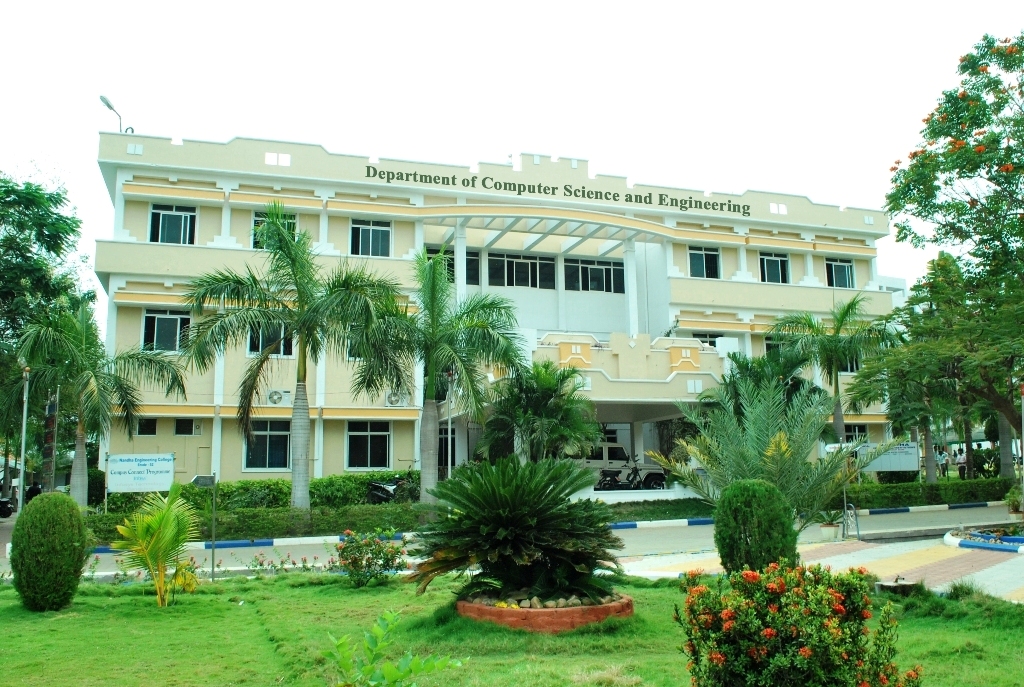DEPARTMENT OF COMPUTER SCIENCE AND ENGINEERING (INTERNET OF THINGS)
|
|
The Department of Computer Science and Engineering (Internet of Things) was established in the year 2022. It offers a 4 year B.E – Computer Science and Engineering (Internet of Things) programme. It designed to make the professionals technically sound in designing solution to the societal and industry problems using smart devices which are capable of communicating with each other.
-
IoT makes virtually everything “smart,” with the power of data collection, AI and cyber networks.
-
IoT network enables us to have better tracking, monitoring, prediction, management and control of various systems in different industries.
-
IoT estimated by 2025, that there will be more than to 21 billion IoT devices
-
IoTapplications involved in Agriculture, Smart Cities, Smart Car, Home Automation, Supply Chain Management etc.,
-
100% placement opportunity with high package in MNC companies like Amazon, IBM, Microsoft, Infosys, CTS, TCS, Wipro etc.,
VISION
To be a centre of excellence providing high quality Computing and Internet of Things education to meet the ever growing needs of the smart society.MISSION
Department of Computer Science and Engineering (Internet of Things) is committed
-
To provide quality education to produce Computer Science and Internet of Things professionals with social responsibility.
-
To excel in research in the field of Computing and Internet of Things.
-
To be a learner centric environment with continual progress to meet the global smart computing needs.
PROGRAM EDUCATIONAL OBJECTIVES (PEOs)
The Graduates of Computer Science and Engineering (Internet of Things) will be able to
PEO 1: Core Competency: To transform the graduates as experts in the computing profession and to satisfy the needs of the IoT industry.
PEO 2: Research, Innovation and Entrepreneurship: To empower the graduates with knowledge in communicating equipments using Internet with ability to offer solutions for real time applications.
PEO 3: Ethics, Human values and Life-Long learning: To possess the necessary soft skills for working in diverse cultural and inter disciplinary teams and ensure that the graduates practice professional ethics in IoT.
PROGRAM OUTCOMES (POs)
PO 1: Engineering knowledge: Apply the knowledge of mathematics, science, engineering fundamentals, and an engineering specialization to the solution of complex engineering problems.
PO 2: Problem analysis: Identify, formulate, review research literature, and analyze complex engineering problems reaching substantiated conclusions using first principles of mathematics, natural sciences, and engineering sciences.
PO 3: Design/development of solutions: Design solutions for complex engineering problems and design system components or processes that meet the specified needs with appropriate consideration for the public health and safety, and the cultural, societal, and environmental considerations.
PO 4: Conduct investigations of complex problems: Use research-based knowledge and research methods including design of experiments, analysis and interpretation of data, and synthesis of the information to provide valid conclusions.
PO 5: Modern tool usage: Create, select, and apply appropriate techniques, resources, and modern engineering and IT tools including prediction and modeling to complex engineering activities with an understanding of the limitations.
PO 6: The engineer and society: Apply reasoning informed by the contextual knowledge to assess societal, health, safety, legal and cultural issues and the consequent responsibilities relevant to the professional engineering practice.
PO 7: Environment and sustainability: Understand the impact of the professional engineering solutions in societal and environmental contexts, and demonstrate the knowledge of, and need for sustainable development.
PO 8: Ethics: Apply ethical principles and commit to professional ethics and responsibilities and norms of the engineering practice.
PO 9: Individual and team work: Function effectively as an individual, and as a member or leader in diverse teams, and in multidisciplinary settings.
PO 10: Communication: Communicate effectively on complex engineering activities with the engineering community and with society at large, such as, being able to comprehend and write effective reports and design documentation, make effective presentations, and give and receive clear instructions.
PO 11: Project management and finance: Demonstrate knowledge and understanding of the engineering and management principles and apply these to one’s own work, as a member and leader in a team, to manage projects and in multidisciplinary environments.
PO 12: Life-long learning: Recognize the need for, and have the preparation and ability to engage in independent and life-long learning in the broadest context of technological change.
PROGRAM SPECIFIC OUTCOMES (PSOs)
The Students of Computer Science and Engineering (Internet of Things) will be able to
PSO 1: Knowledge Proficiency: Students at the time of graduation will be equipped with knowledge of IoT equipments in various platforms, possess computing skills with secured network control and act responsibly in legal, ethical and security related issues.
PSO 2:Recent Technology: Students at the time of graduation will be able to apply emerging appropriate technology and programming skills to find optimal solutions for complex problems by applying domain knowledge to transform innovative ideas into reality.




